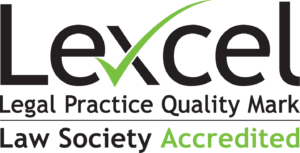As well as being expensive in terms of time and money, developing customised software can be a legal minefield, particular in relation to copyright and ownership. How can you make sure you establish the legal right to what you have paid for?
The Legal Background
- As far as ownership is concerned, the general rule under the Copyright Designs and Patents Act is that the author of the work is the first owner of any copyright in it, subject to various provisions in the Act.
- One important exception to this rule is the provision relating to employers. Essentially, this provides that, when an employee develops software in the course of his job, his employer will own the copyright in that software (unless otherwise agreed).
- It follows therefore that such employees must have appropriately drafted employment contracts. This will ensure that their employee status is made clear, along with the nature of their duties in relation to the work, and will help to avoid disputes about ownership later on.
- The legal position regarding contractors is different. If you instruct a contractor to develop software then he will be the author of the work and will own the copyright (subject to any agreement to the contrary). A proper contract must therefore be in place before work starts.
- Ownership of the intellectual property rights, including the copyright, must be clearly set out. It is surprising how many businesses commission the development of software without covering ownership issues in a contract. Now and again the courts have ruled that ownership of software lies with the party who commissioned it, but generally they are loath to take that view.
Case Law
- The case of Griggs Group Limited v Evans is a good example of how things can go wrong. Griggs, the owners of the famous ‘Doc Martens’ footwear mark, commissioned a design company to redesign their logo, which in turn employed a freelance designer Ross Evans to do the work.
- Neither Griggs nor the design company ever mentioned the word copyright. The result was that Griggs found their company logo was vested in Ross Evans who proceeded to make the Doc Martens logo available to Griggs’ main competitor in Australia.
Confidentiality and Competition
- Questions of confidentiality and competition also need to be considered. Regardless of whether the developer is an employee or a contractor, he will have access to confidential information about your business and the performance of the software, both of which may be as valuable to a potential competitor as they are to you.
- The courts have set out tests for confidentiality. Any contract should work around these principles to ensure that the information obtained during the development process is confidential and that those doing the work are aware of their obligations.
- It also makes sense to anticipate what might happen when key people in the development team leave or move on in the future. To avoid competitors benefiting from their knowledge of the software, it may be advisable to impose restrictive covenants within the relevant employment or development contracts, and these need to be drafted with great care if they are to be enforceable.
Before deciding to develop your own software, it may be worth investigating other options such as off-the-shelf products or licensing options to use existing software. Certainly, if you decide to develop your own, then it is wise to get legal advice first to ensure that ownership and rights in that software are clear and that steps have been taken to prevent your competitors from benefiting from your original work.
Litigation partner Paul Gordon regularly advises on high-value disputes involving commercial contracts, copyright and intellectual property. He is accustomed to dealing with complex High Court litigation as well as lower-value matters. paul.gordon@willans.co.uk
Disclaimer: All legal information is correct at the time of publication but please be aware that laws may change over time. This article contains general legal information but should not be relied upon as legal advice. Please seek professional legal advice about your specific situation - contact us; we’d be delighted to help.












